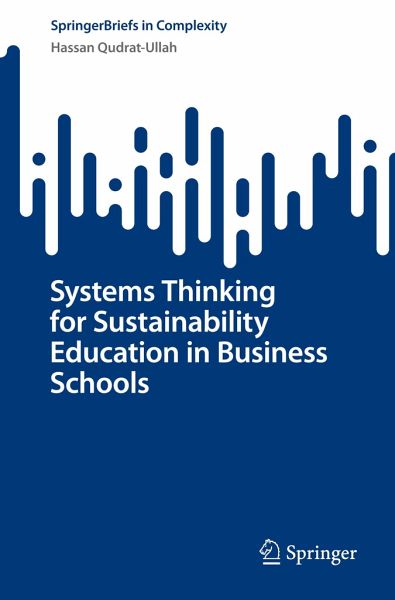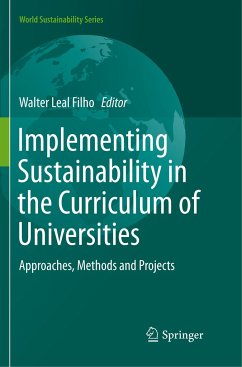
Systems Thinking for Sustainability Education in Business Schools

PAYBACK Punkte
21 °P sammeln!
This book delves into the current state and future prospects of systems thinking and sustainability education within business schools. It meticulously examines the trends and drivers shaping the demand and supply of such education, along with the implications and challenges it presents for various stakeholders and society at large. Strategic recommendations and suggestions are provided to elevate and propel systems thinking and sustainability education in business schools, outlining a visionary roadmap for the future.Furthermore, the book explores the intersectionality of sustainability and di...
This book delves into the current state and future prospects of systems thinking and sustainability education within business schools. It meticulously examines the trends and drivers shaping the demand and supply of such education, along with the implications and challenges it presents for various stakeholders and society at large. Strategic recommendations and suggestions are provided to elevate and propel systems thinking and sustainability education in business schools, outlining a visionary roadmap for the future.
Furthermore, the book explores the intersectionality of sustainability and diversity in business education, offering examples and cases of visionary and innovative initiatives and projects in the field.
Distinguished by special features such as illustrations, the book offers a comprehensive and integrative overview of the current landscape and future trajectories of systems thinking and sustainability education in business schools.
The primary benefit for readers lies in gaining a deeper and broader understanding of systems thinking and sustainability education in business schools. It equips them with the knowledge to apply systems thinking and sustainability principles and tools to tackle the complex and wicked problems of the twenty-first century. Additionally, the book aims to inspire and inform business schools and their stakeholders to embrace and enhance systems thinking and sustainability education in their curricula and pedagogy, contributing to the advancement of sustainability and systems thinking in both business and society.
Furthermore, the book explores the intersectionality of sustainability and diversity in business education, offering examples and cases of visionary and innovative initiatives and projects in the field.
Distinguished by special features such as illustrations, the book offers a comprehensive and integrative overview of the current landscape and future trajectories of systems thinking and sustainability education in business schools.
The primary benefit for readers lies in gaining a deeper and broader understanding of systems thinking and sustainability education in business schools. It equips them with the knowledge to apply systems thinking and sustainability principles and tools to tackle the complex and wicked problems of the twenty-first century. Additionally, the book aims to inspire and inform business schools and their stakeholders to embrace and enhance systems thinking and sustainability education in their curricula and pedagogy, contributing to the advancement of sustainability and systems thinking in both business and society.












